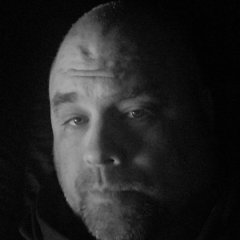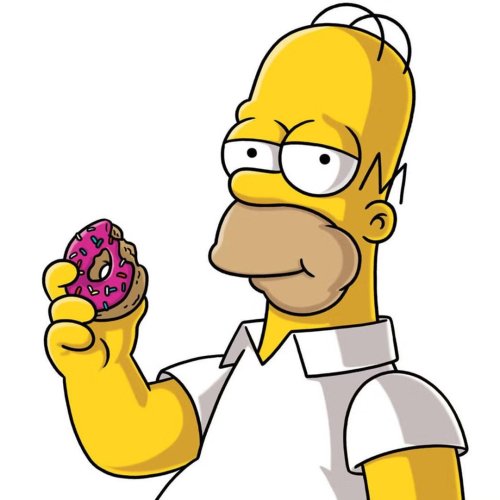
Twins Video
Ryan Jeffers grew up in Raleigh, North Carolina, where he became a star on the baseball team at Sanderson High School. He played on Perfect Game and Impact teams nationally as well as Dirtbags, a developmental team that has many MLB alumni including Chris Archer, Wil Myers and Kyle and Corey Seager. Jeffers competed on the organization’s top team.
For college, he made the two-hour drive south from Raleigh to the University of North Carolina at Wilmington.
“I had a couple of options. Wilmington wasn’t the highest offer, but I felt the best going there. That was going to give me the best place to develop, and best coaching staff, and I really felt comfortable there. So I made the decision to go there. I didn’t play a ton as a freshman, but I worked really hard and earned my spot, earned my starting job.”
As a freshman, he played in just 13 games, but he hit .348 (8-for-23) with three doubles and a homer. After that, Jeffers became a starter and made the most of it. As a sophomore, he played in 53 games and hit .328/.422/.604 (1.026) with 19 doubles and 10 triples. He was even better as a junior in 2018. In 62 games, he hit .315/.460/.635 (1.095) with 22 doubles and 16 home runs.
As he got more playing time, the scouts certainly took notice. Jeffers noted, “Sophomore year, we had a lot of really good players, so there were a lot of scouts there all the time. So they got to see me play a little bit then. Then my junior year, it just kind of started exploding on me. A lot of people were talking, and I had a lot of conversations.”
Last June, the Twins surprised a lot of people, a lot of “experts” when they made him their second-round pick. His selection was aired on MLB Network and their panel talked about how he wasn’t even in their Top 200 draft prospects. They said that he was definitely considered a bat-first catcher, that he could hit, but there were a lot of questions about his defense behind the plate.
Jeffers watched. He heard his name called and all of his question marks put out on national TV. His response to that discussion should please Twins fans.
“It’s kind of fun. It’s kind of my story, coming through high school. I actually walked on at UNC-W. So I’ve kind of always earned my spot. Coming into the draft, being under the radar there too, and it’s just been the story of my career.”
But as we know, it just takes one team to take a chance. Jeffers continued, “The Twins believed in me. The Twins loved me. But still there’s a lot of doubters out there, doubt if I can still catch, doubt if I can do that. All I can say is just watch me. Just watch me. I bet you I’ll prove you wrong.”
Jeffers has always been a catcher. “I grew up as a catcher. When I got to high school, I just kept catching.“
He was a catcher at Wilmington. He spent a little time in left field to keep his bat in the lineup, but to keep his legs fresh behind the plate.
He’s heard the questions about his defense time and again. It has become a source of motivation. “It’s happened to me for so long. It adds a little fuel to the fire, but it’s always been my goal to be the best catcher that I can be. Obviously the offense is going to be there, but my goal is to be the best catcher I can be, and that’s something I plan to do for the rest of my career. I plan on catching here at Target Field one day, hopefully in the near future.”
While it’s great to have that motivation, Jeffers knows that it is an area where he has room to improve. He touted the value of having minor league catching coordinator Tanner Swanson present, particularly throughout the offseason, to work with him on the technical aspects of the position.
“That’s always been the part of my game that I need to work on the most. Yeah, I work on offense, but it’s something that's been a lot more natural to me. Defensively, I think I’m such a quick learner and have the aptitude to learn so fast. In college, I never had a catching coach. I was pretty much self-taught, and I still had numbers that were comparable with some of the better receivers in the nation. When I got to pro ball, I worked with Tanner (Swanson), I just soaked in so much knowledge and I’ve been feeling better than ever behind the plate. Worked hard this offseason getting ready for the year behind the plate.”
In fact, reports from a variety of sources indicate that his defense impressed people in and around the organization, both by the eye test and through some statistics, specifically his pitch framing.
Jeffers adds, “Receiving is the most important aspect of the catcher’s job, by far. Tanner always tells us, ‘Think of how many times you receive the ball versus how many times you throw the ball per game.’ It’s like 200 to maybe one or two.That’s the part where you, as a catcher, can make your biggest impact on the game. That’s what I’ve really taken into the offseason to focus on.”
Another part of the fun of catching is trying to think with and even out-think the opposing batters. It is an aspect of the game that Jeffers really enjoys.
“I was a physics major at school. I’m very scientific, analytic, a really good thinker. So I love that kind of strategic part of catching, calling the game, reading the hitters, reading the pitcher, reading emotions. I love that part.”
As a side note, I asked Jeffers if he plans to return to college to finish up his college physics degree. “I still have a year left. I’ll eventually,” and then he paused, “maybe, but hoping that I never have to go back to school. I don’t feel like hopping back into Quantum Mechanics or anything like that.”
Now let’s get to the fun stuff. Let’s talk about Ryan Jeffers’ bat, the aspect of his game that he is known for. What a first impression he made in his professional debut. He began by playing 28 games in Elizabethton. He hit an impressive .422/.543/.578 (1.121) with seven doubles and three homers.
“I wasn’t surprised. I think I surprised a lot of people. I think a lot of people believed in my bat, but I don’t think a lot of people expected what I did do. I knew that was what was going to come. I knew that’s how I played. But I think it did surprise people... I mean, you’re going to surprise a lot of people when you hit .422 in rookie ball. That’s kind of who I am.”
He finished the season with 36 games for Cedar Rapids. Things weren’t quite as easy for him, but he still more than held his own. He hit .288/.361/.446 (.807) with 10 doubles and four homers.
It was a strong debut. Jeffers showed some power, got on base, and generally put the ball in play. So what kind of hitter is Jeffers? In his own words, “I think I’m a very well-rounded hitter with a lot of power. That’s how I would describe it. I can hit for power. I can hit for average, like I’ve shown, but I also take pride in trying to walk more than I strike out. I don’t strike out a lot normally at all. I put the ball in play. A higher average, but also a lot of power that I can utilize and get to a lot in games.”
While Jeffers says that he isn’t necessarily one to set a lot of goals for himself, it does enjoy taking that analytic approach to his game and to his numbers. “I’m playing to do the best I can do. I can take information very well. So I can look at numbers and say if I want to get to this point, I need to do a little better here or a little over there. People say that you shouldn’t look at your stats, but stats tell you how you’re doing. I like to look at my stats. If I’m struggling a little bit, it’s going to show up in your stats. Some let stats affect them the wrong way.”
Jeffers' season ended following the Kernels run in the Midwest League playoffs. He headed back home to Wilmington, but his stay wasn’t very long. Hurricane Florence was bearing down on the east coast and heading straight for Wilmington. “I had just gotten back from the season the day before. We evacuated the day after I got home. I didn’t even unpack, just left the suitcases in the car and headed out.”
Fortunately Wilmington is doing well and Jeffers quickly returned. With no school classes to worry about, Jeffers still returned to school to keep on working to better himself. “We have a really good facility down at UNC-W where I’ve been working out with a bunch of other pro guys. We have the weight room and the batting cages to get in and really get a good workout in. From there it was nutrition-focused and focus on stuff that is going to make me a better baseball player and not have to focus on anything outside of baseball.”
He made the trek down to Ft. Myers a couple of time to participate in camps with teammates, trainers and instructors. “I went to pretty much every strength camp which is working out with Ian (Kadish), the strength coach. We worked on moving the body right. They watched how we do it, and then send home with a work out. Then Instructs and catching camp were both after the season.”
When he’s not doing baseball activities, Jeffers enjoys what Wilmington has to offer. “I really am down with the beach. Wilmington is on the beach. We love just to be down there. Just spend as much time as we can, me and my fiance, just touring around and hanging out really.”
You can call it what you want. A chip on his shoulder. A little extra fuel for the fire. Extra motivation. Ryan Jeffers has the attitude and the drive to prove a lot of people wrong. His bat may carry him, but he believes he can be a strong defensive backstop too.
Jeffers will soon be starting his first full season as a professional baseball player. Most likely he will begin with some more time in Cedar Rapids, but he could move up to the Miracle in Ft. Myers quickly. For Jeffers, he will just keep working hard to prove people wrong on his way to the big leagues.
MORE FROM TWINS DAILY
— Latest Twins coverage from our writers
— Recent Twins discussion in our forums
— Follow Twins Daily via Twitter, Facebook or email
— Become a Twins Daily Caretaker






Recommended Comments
Join the conversation
You can post now and register later. If you have an account, sign in now to post with your account.
Note: Your post will require moderator approval before it will be visible.